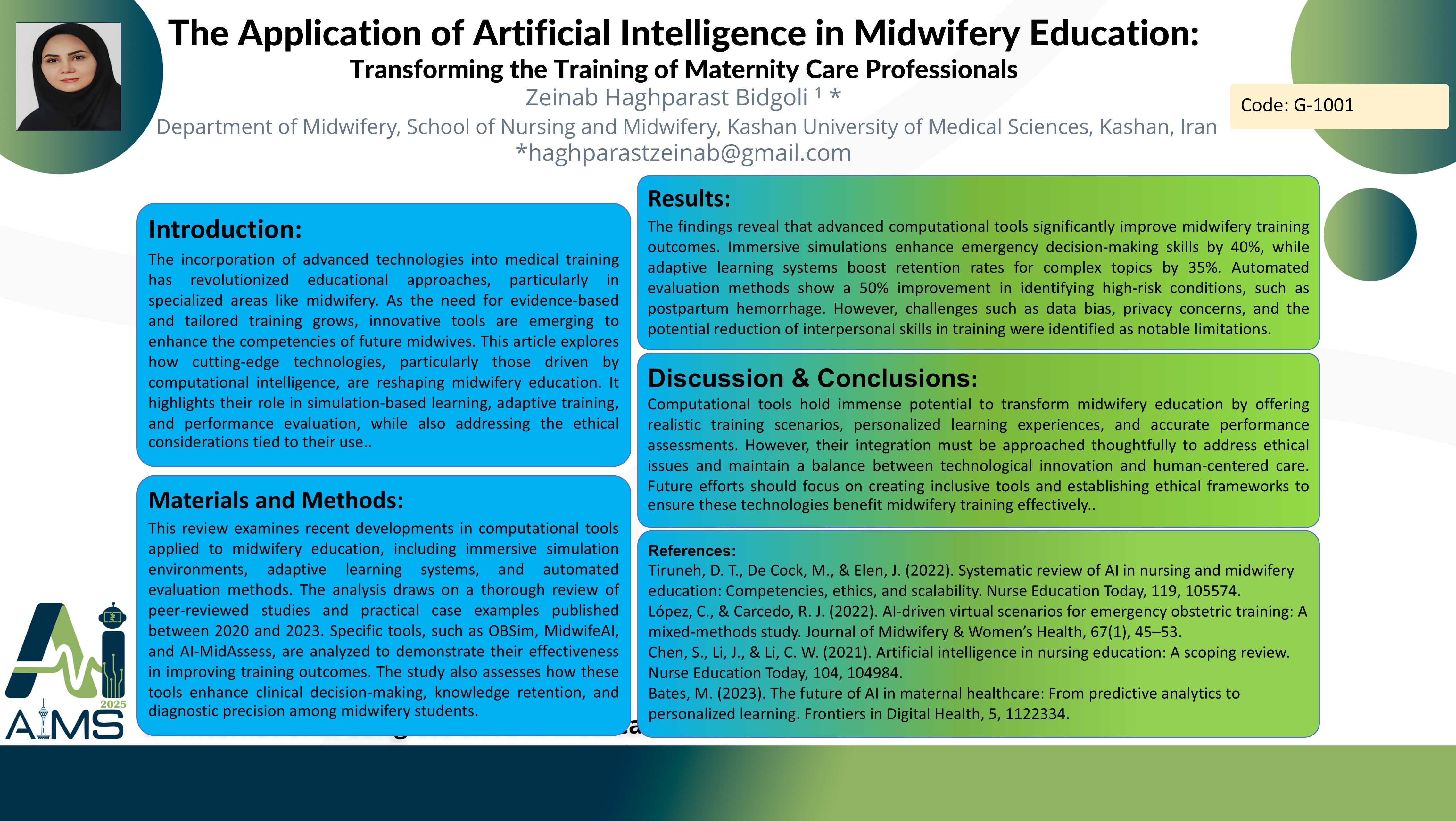کاربرد هوش مصنوعی در آموزش مامایی: تحول در آموزش حرفهای مراقبت از مادران
کد: G-1267
نویسندگان: Zeinab Haghparast Bidgoli * ℗
زمان بندی: زمان بندی نشده!
برچسب: دستیار مجازی هوشمند
دانلود: دانلود پوستر
خلاصه مقاله:
خلاصه مقاله
Background and aims: The incorporation of advanced technologies into medical training has revolutionized educational approaches, particularly in specialized areas like midwifery. As the need for evidence-based and tailored training grows, innovative tools are emerging to enhance the competencies of future midwives. This article explores how cutting-edge technologies, particularly those driven by computational intelligence, are reshaping midwifery education. It highlights their role in simulation-based learning, adaptive training, and performance evaluation, while also addressing the ethical considerations tied to their use. Method: This review examines recent developments in computational tools applied to midwifery education, including immersive simulation environments, adaptive learning systems, and automated evaluation methods. The analysis draws on a thorough review of peer-reviewed studies and practical case examples published between 2020 and 2023. Specific tools, such as OBSim, MidwifeAI, and AI-MidAssess, are analyzed to demonstrate their effectiveness in improving training outcomes. The study also assesses how these tools enhance clinical decision-making, knowledge retention, and diagnostic precision among midwifery students. Results: The findings reveal that advanced computational tools significantly improve midwifery training outcomes. Immersive simulations enhance emergency decision-making skills by 40%, while adaptive learning systems boost retention rates for complex topics by 35%. Automated evaluation methods show a 50% improvement in identifying high-risk conditions, such as postpartum hemorrhage. However, challenges such as data bias, privacy concerns, and the potential reduction of interpersonal skills in training were identified as notable limitations. Conclusion: Computational tools hold immense potential to transform midwifery education by offering realistic training scenarios, personalized learning experiences, and accurate performance assessments. However, their integration must be approached thoughtfully to address ethical issues and maintain a balance between technological innovation and human-centered care. Future efforts should focus on creating inclusive tools and establishing ethical frameworks to ensure these technologies benefit midwifery training effectively.
کلمات کلیدی
Midwifery Training, Artificial Intelligence, Education
